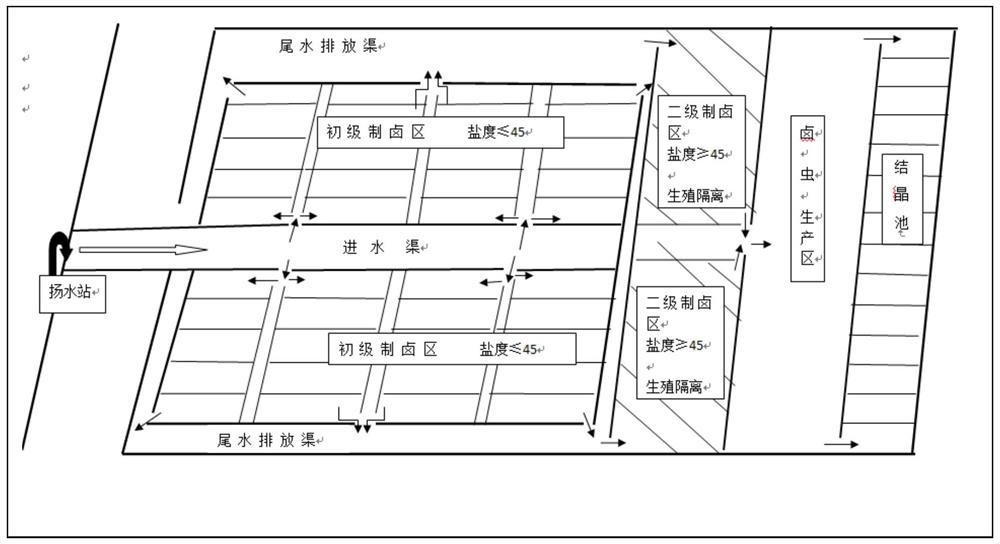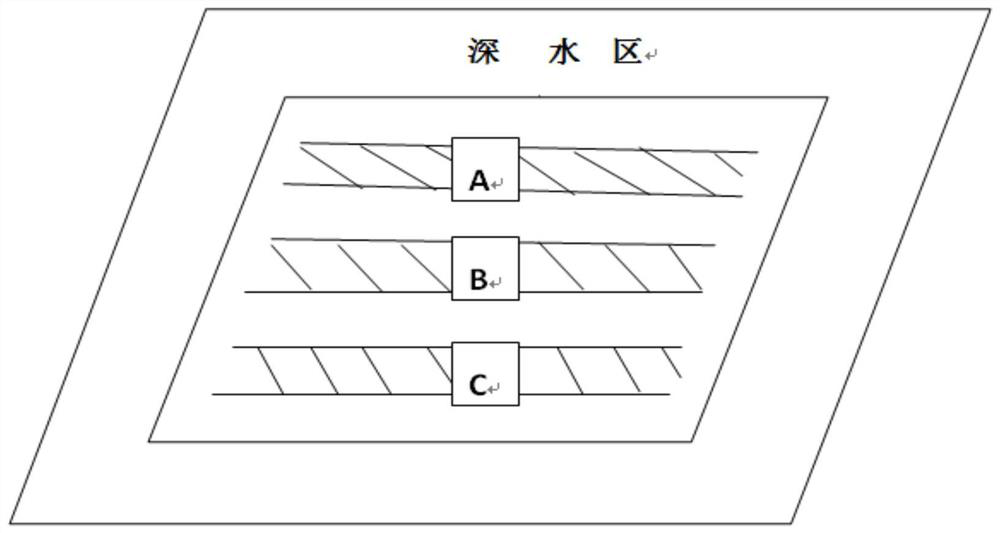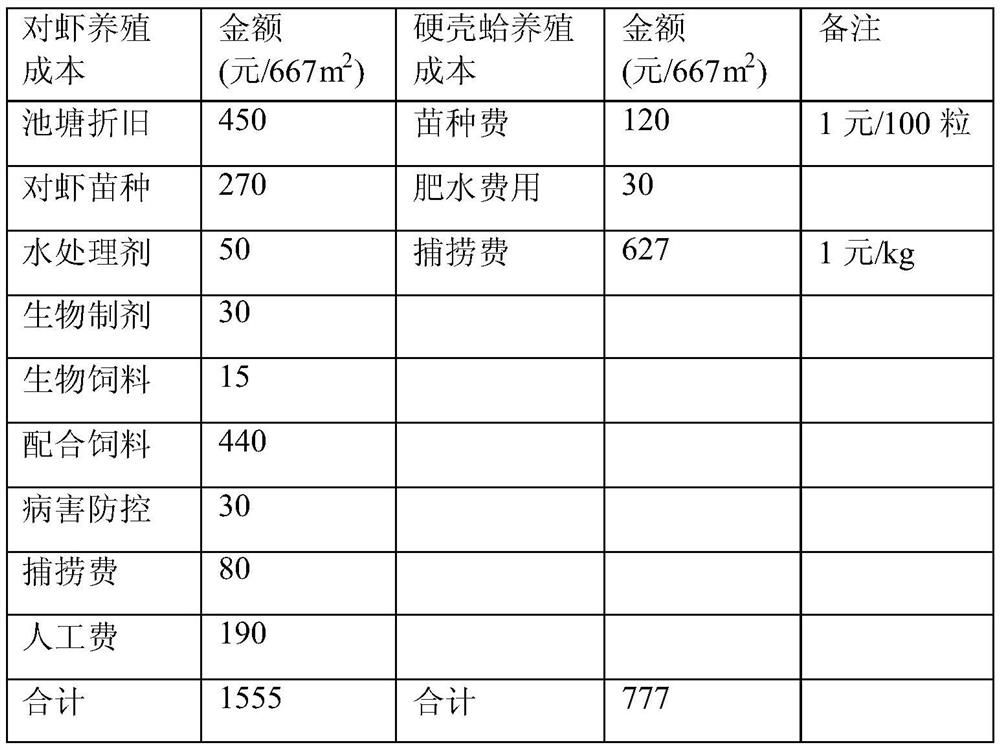A large-scale breeding method for preventing and controlling alien marine shellfish biological invasion
A technology of biological invasion and breeding method, which is applied in the field of large-scale pond culture of hard shell clams, can solve the problems of reduced survival rate, etc., and achieve the effects of increasing foreign exchange earnings from exports, improving breeding benefits, and increasing economic benefits
- Summary
- Abstract
- Description
- Claims
- Application Information
AI Technical Summary
Problems solved by technology
Method used
Image
Examples
Embodiment 1
[0048] A large-scale cultivation method for preventing and controlling alien marine shellfish biological invasion, which comprises the following steps:
[0049] (1) Selection of tidal flat ponds and design of ponds Select the primary brine production area (prawn breeding area) of the saltworks, and carry out mixed culture of prawns and hard shell clams in areas where the salinity does not exceed 45. For details, see figure 1 . Hard shell clams reach the commercial standard and become sexually mature after 2 years of breeding. The remaining individuals will naturally lay eggs and breed offspring. Parent clams with a shell length of 4-5 cm can lay 500,000 to 5 million eggs at a time, and their larvae may With the discharge of the tail water from the cultivation, it flows into the next-level brine production area, but with the evaporation of seawater, the salinity in the brine production area (or high-salt aquaculture area) is getting higher and higher. When the salinity is above...
PUM
 Login to View More
Login to View More Abstract
Description
Claims
Application Information
 Login to View More
Login to View More - R&D
- Intellectual Property
- Life Sciences
- Materials
- Tech Scout
- Unparalleled Data Quality
- Higher Quality Content
- 60% Fewer Hallucinations
Browse by: Latest US Patents, China's latest patents, Technical Efficacy Thesaurus, Application Domain, Technology Topic, Popular Technical Reports.
© 2025 PatSnap. All rights reserved.Legal|Privacy policy|Modern Slavery Act Transparency Statement|Sitemap|About US| Contact US: help@patsnap.com



